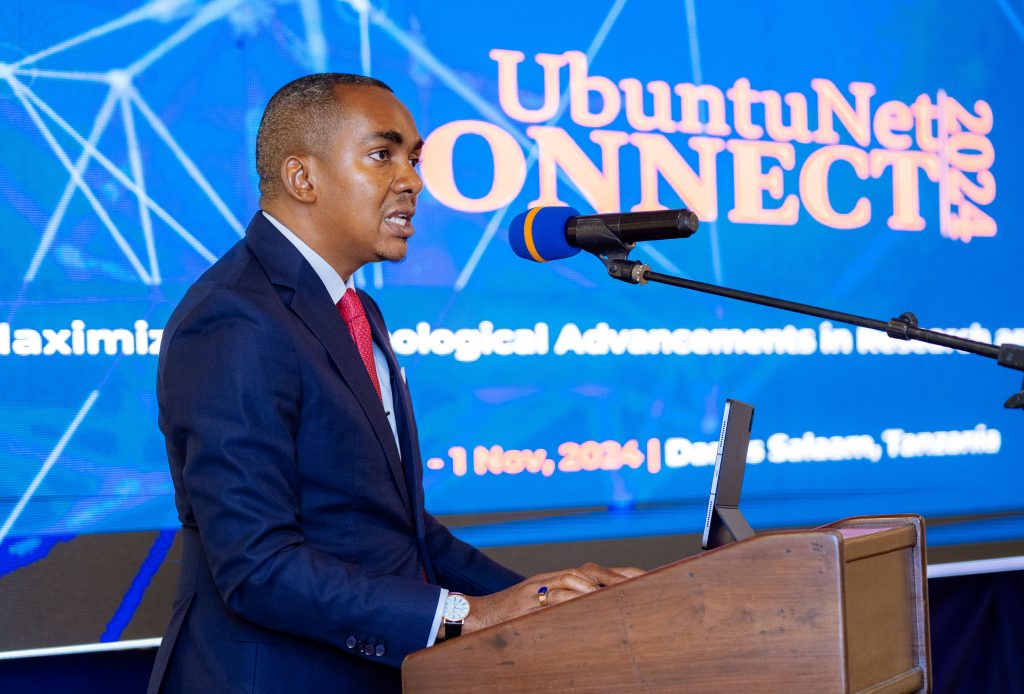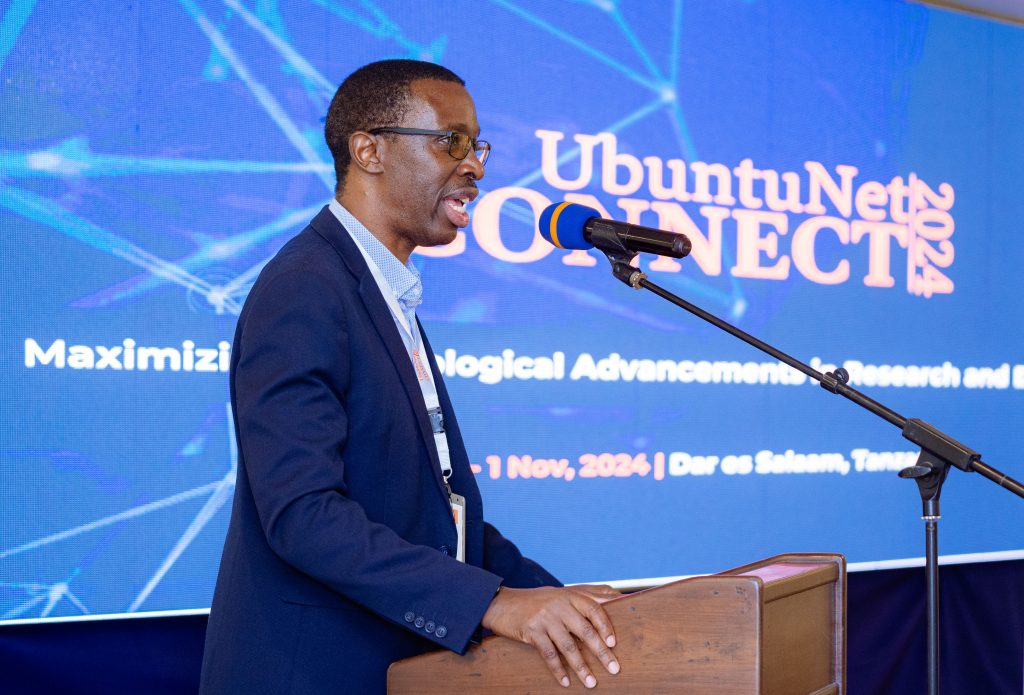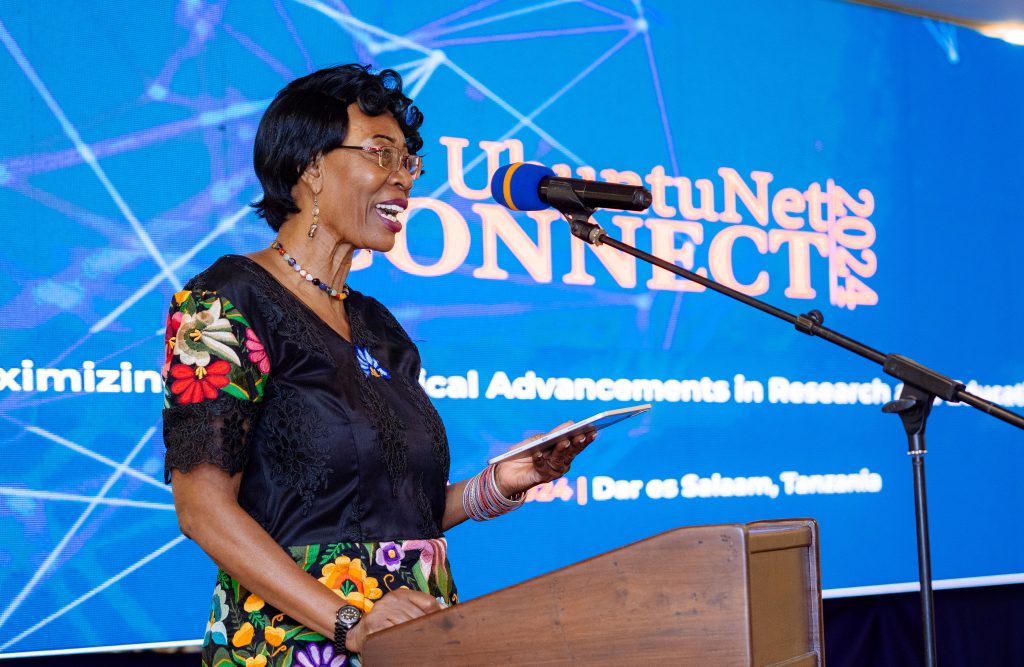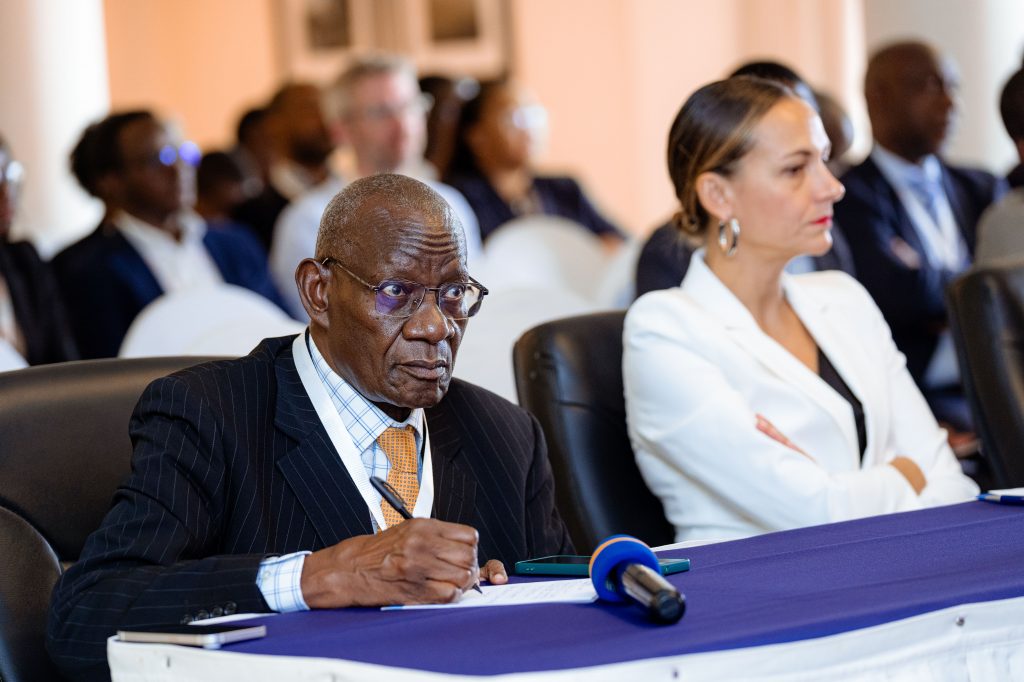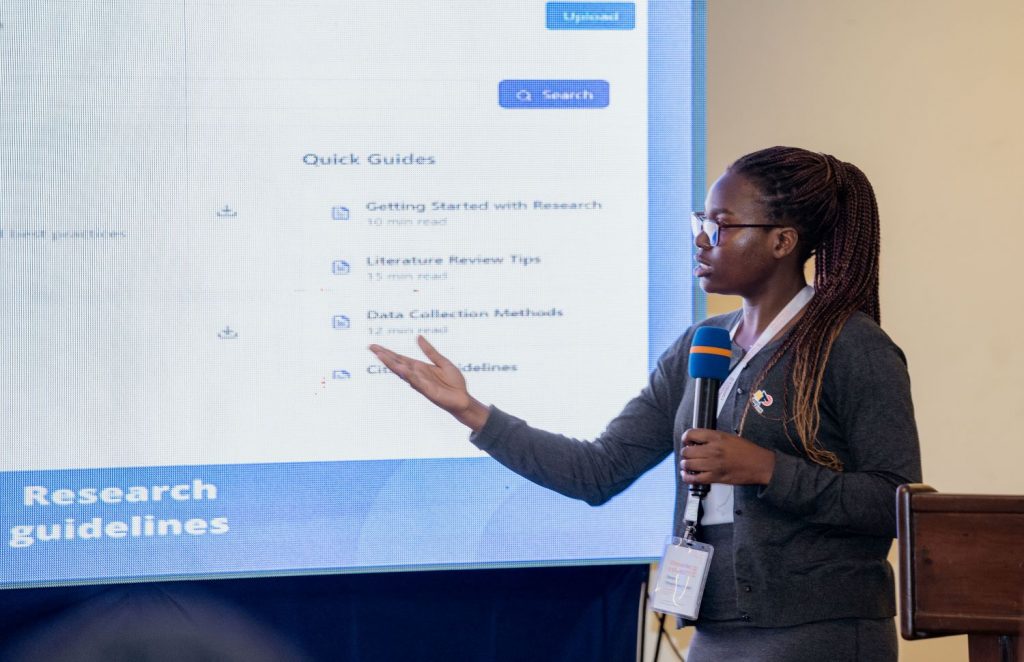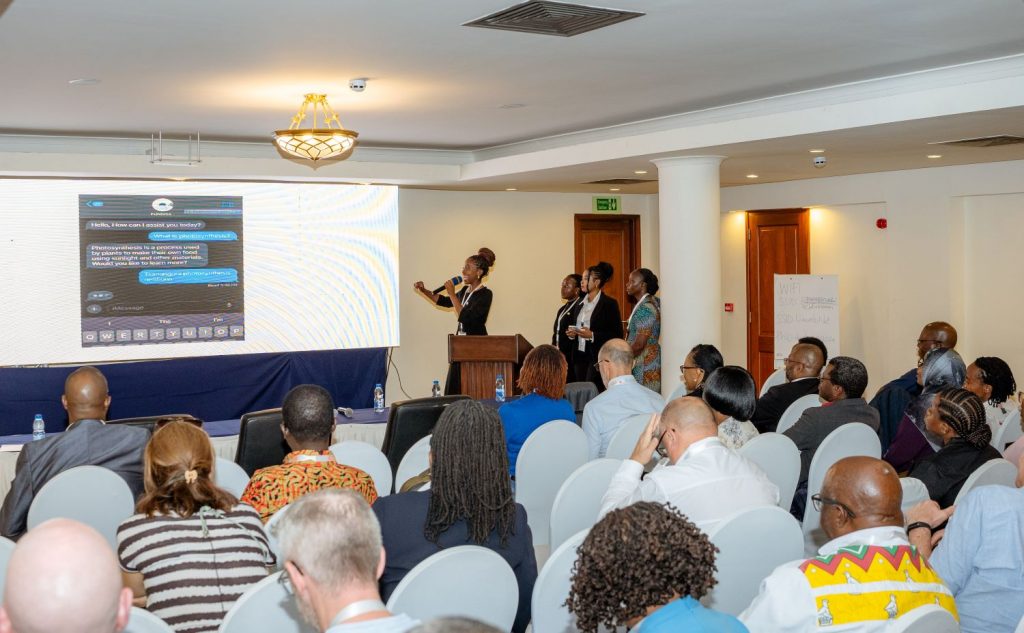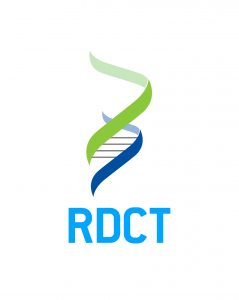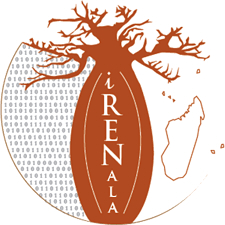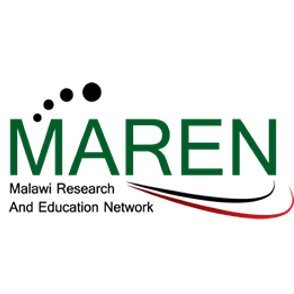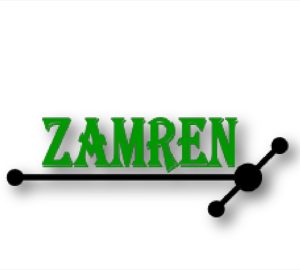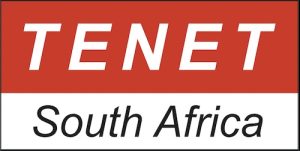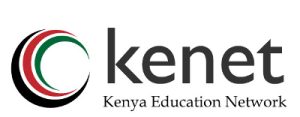
October 30-31, Harare, Zimbabwe
Theme: Resilient and Sustainable Research and Education Networks for the Future
UbuntuNet Alliance promotes research and education networking in East and Southern Africa. Research and education networks (RENs) must be built to withstand emerging challenges while ensuring long-term sustainability. This theme explores strategies for strengthening the resilience of RENs through robust cybersecurity measures, advanced connectivity solutions, and innovative policy frameworks. It also highlights the need for inclusive and equitable access to digital resources, environmentally sustainable networking practices, and cross-border collaborations that drive global research excellence. By addressing key issues such as high-performance computing, open science, disaster recovery, and financial sustainability, this conference aims to shape the future of RENs. Keynote presentations, panel discussions, and paper presentations that address topics and anchor discussions on the conference theme are invited.
Keynote Speakers
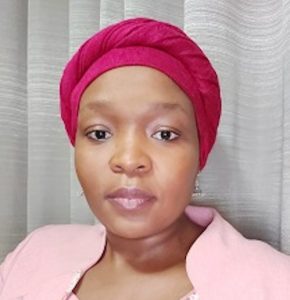
Prof. Mercy Chitauro
Associate Professor and Head of the Department of Cyber Security, Faculty of Computing and Informatics, at the Namibia University of Science and Technology. Prof Chitauro is a results-oriented, highly accomplished academic in the field of cybersecurity. She is very passionate about research, teaching, and community engagements featuring cyber security, IT law, Child online protection, information security management, risk management, AI in cybersecurity, and IoT security. Prof. Chitauro is a co-founder (currently serving as vice chair since 2020) of the Namibia National Cyber Security Competition. She is currently serving as the Head Training Africa and Head coach for Southern Africa, Region for the International Cybersecurity Competition.
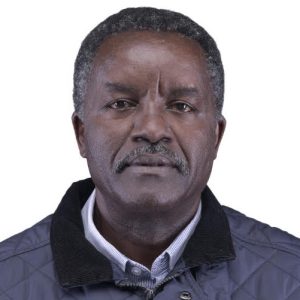
Prof Timothy Waema
Timothy Mwololo Waema is a Professor of Informatics in the University of Nairobi and was the and lead consultant in the development of Kenya’s AI Strategy. He holds a Ph.D. degree in Information Systems from the University of Cambridge (UK) and a bachelor’s degree in EEE from the University of Bath (UK). Prof. Waema has carried out extensive research in many aspects of IT and development. He also has extensive IT and management consultancy experience that spans over 30 years in both private and public sector organizations in Kenya and the African region in many aspects of IT and development. For almost three decades, he has been involved in developing numerous national policy and strategy documents relating to IT and Science, Technology and Innovation (STI).
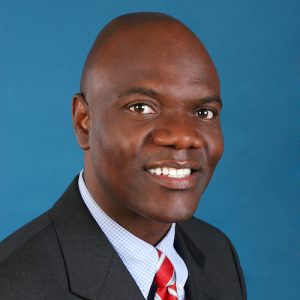
Prof Arthur G.O. Mutambara
Prof Mutambara is the Director of the Institute for Future Knowledge at the University of Johannesburg, South Africa, where he also serves as the Head of the Decentralised AI and Control Systems Research Group. Prof Mutambara is a world-renowned control systems specialist, roboticist, academic, author and technology strategist. He is a key African thought leader and presenter on the AI revolution. Prof Mutambara is a Chartered Engineer, a Fellow of the Institution of Engineering and Technology, a Professional Engineer, a Fellow of the Zimbabwe Institution of Engineers, a Fellow of the Zimbabwe Academy of Sciences, and a Senior Member of the Institute of Electrical and Electronics Engineers. Professor Mutambara is the Former Deputy Prime Minister of Zimbabwe and was one of the three Principals who created and led the Government of National Unity (GNU) in Zimbabwe from 2009 to 2013, together with the late Prime Minister Morgan Tsvangirai and the late President Robert Mugabe.

Prof Madara Ogot
CEO of UbuntuNet Alliance for Research and Education Networking. Prior to that was Deputy Vice-Chancellor for Research Innovation and Enterprise at the University of Nairobi and Academic and Student Affairs at Maseno University, both in Kenya. With PhDs in Mechanical Engineering and Business Administration, Ogot’s interests are at the intersection of technology and business, especially with regard to Small and Medium Enterprises.
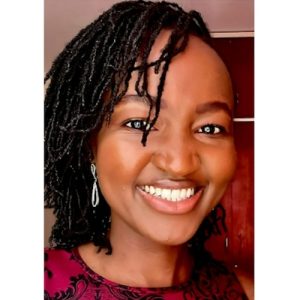
Barbara Muthoka
A results-driven Programme Manager at AfChix, advancing digital inclusion and leadership opportunities for African women in technology. With over eight years of
experience in international development and project management, she has managed
multi-country initiatives worth $390K+, led teams of 16+, and impacted 7,000+ beneficiaries. She has led teams to scale women-led community networks, connect 13 rural schools to Internet access, and train 1,250 women in digital literacy. Barbara holds a BSc in Forensic Science from Kenyatta University and is committed to building inclusive frameworks that center women’s voices across Africa’s tech ecosystem.
Dr Brilliant Habeenzu
Permanent Secretary, Ministry of Technology and Science, Zambia.
Sub-Themes
-
Network Resilience and Cybersecurity: Strategies for building robust network infrastructures, mitigating cyber threats, and enhancing data protection. Discussions will focus on best practices in network monitoring, identity and access management, and policies for safeguarding sensitive research data.
-
High-Performance Computing and Cloud for Research & Education: The role of HPC in research, the benefits of cloud infrastructure, and strategies for making these technologies accessible to institutions with limited resources. Discussions will focus on AI, machine learning, and big data analytics innovations.
-
Open Science and Educational Resources: Frameworks for sharing research outputs, implementing FAIR (Findable, Accessible, Interoperable, and Reusable) data principles, and creating open-access digital repositories.
Policy and Governance for Sustainable Research & Education Networks: Policy approaches that support equitable access, cybersecurity, data protection, and funding for RENs. Discussions to include the role of government support and private sector partnerships in shaping policies that enhance research collaboration and digital education.
- The Future of Internet Connectivity for Research and Education: Emerging technologies such as 5G, Starlink and
IPv6 are shaping the next generation of research and education networks. Discussions also to include strategies for expanding connectivity to underserved institutions, improving network performance, and fostering global collaboration through enhanced internet infrastructure. Additionally, discussions should include how to bridge the digital divide and build capacity in order to ensure that African research and education community can benefit from upcoming innovations in internet connectivity. -
Green and Sustainable Networks: Discussions will highlight innovations in green computing and sustainable ICT practices that contribute to environmentally responsible RENs.
-
Disaster Recovery and Business Continuity for RENs: Best practices in disaster recovery planning, redundancy strategies, and business continuity frameworks that ensure RENs can quickly recover from disruptions. Institutions will share insights on building resilient systems that protect data integrity and maintain seamless operations during crises.
-
Monetization and Sustainability of Research & Education Networks: various approaches to monetizing REN services, such as offering value-added services, forming public-private partnerships, and diversifying funding sources. Discussions will focus on balancing affordability with sustainability, reducing dependency on donor funding, and fostering financial resilience in research and education networks.
Who Should Attend/Why should you attend?
- College and University ICT Directors (or equivalent) and Librarians – Opportunity to present on the extent of digitalisation in your institution, learn from others, gather information and hold discussions on challenges faced, potential digital solutions, and opportunities for collaboration.
- Researchers, academics, and students – Share how you use digital technologies and the UbuntuNet Alliance/NREN research and education network to support your research, teaching and learning in future directions. Provides opportunities to learn and form new collaborations across the continent.
- Government officers (related to ICT and Education): Learn about your government’s current and future policies, actions, and plans to stimulate the redesign of digitalised African universities. This will allow you to learn from what is happening in other countries.
- Private/Industry – Present case studies on emerging digital technologies supporting the digitalised African University. You have the opportunity to learn and discuss the challenges universities face, present solutions, and seek potential business.
- NREN Community: This is an opportunity to listen to the customer’s voice and learn where the services offered by NRENs can be a catalyst and anchor of the redesigned digital college and university.
Timelines
- March 10 – Call for papers presentations opens.
- June 2 – Early bird registration opens
- June 30 – Deadline to submit paper proposals
- August 31 – Early bird registration closes
- September 1 – Regular registration opens
- September 30 – Regular registration closes
- October 30-31, UbuntuNet-Connect 2025.
Sponsorship
UbuntuNet Connect 2025 presents a rare opportunity for companies and organisations with a national, regional or global footprint to meet Africa’s research and education networking community and market their products and services.
Reasons to Sponsor
- Thought Leadership – Position your products, services, and executives as key players in the research and education community.
- Networking – Gain face-to-face access and direct contact with typically hard-to-reach decision-makers and the education community.
- Branding – The sponsorship will give your company or organisation the visibility it needs in the African research and education community.
Key Links
- More information on Toursit Activities: Zimbabwe Tourism Board
- Visa Information: Visa applicants are advised to apply through the official Zimbabwe e-Visa platform.
- Health: More information can be found on the Zimbabwe Tourism Board Webpage on Health.
Organising Committee
UbuntuNet Alliance
- Harold Bowa
- Mable Swart
- Beatrice Ng’ambi
- Aubrey Kondowe
- Shadreck Kalitera
- Wilson Wasswa
- Revelation Nyirongo
ZIMREN
- Mirriam Chahuruva
- Luke Chapeyama
- Solomon Kasirori
- Leonah Mawire
Conference Venue
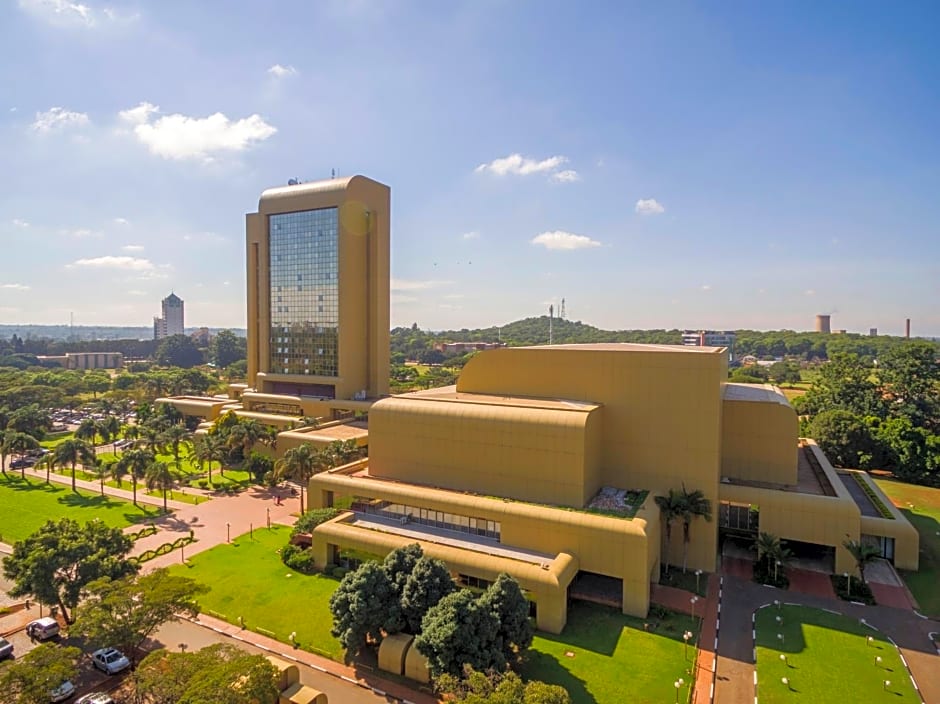
The Rainbow Towers Hotel & International Conference Centre is an international convention centre with unequalled conferencing capacity. It is the venue of choice in Zimbabwe and Southern Africa. The 19 conference rooms range from small to medium to large. The centre is located on the fringe of the vibrant city centre, 12 km from the airport, and is surrounded by spacious landscaped gardens.
Conference Info Pack
The official UbuntuNet-Connect 2025 Information Pack is your go-to guide for everything you need to know ahead of your trip to Harare, Zimbabwe. It provides details on travel and logistics, including visa requirements, passport guidelines, and key tips on currencies and payment options in Zimbabwe, together with essential health and safety information, local emergency contacts, and recommended medical facilities near the conference venue — the Rainbow Towers Hotel and Conference Centre. Participants can also find practical insights on transportation options and weather conditions in Harare, as well as a curated list of nearby restaurants and accommodation options, complete with contact details and indicative rates
Scenes from UbuntuNet Connect 2024
